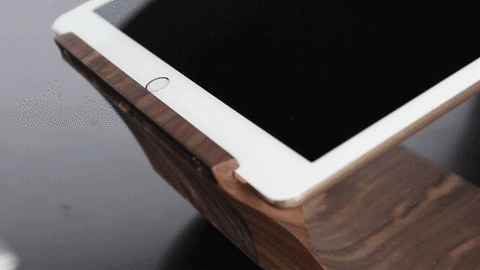- Openpeer
- Posts
- 🤖 We May Become Cyborgs
🤖 We May Become Cyborgs
Today we review new research from Johns Hopkins University that allows for nano tattoos on living cells and a look into how Linus Health has modernized a dementia test with AI

It’s Monday!
That means more AI innovations!
We are one step closer to becoming cyborgs with a new gold nano ‘tattoo’ discovery. And a look into how AI and the Apple Pencil are being used to spot dementia.
Also, there is a fresh new list of featured innovators…
PLUS: MIT University is offering a 6-week online AI course!
Let’s Review 👇

Researchers at Johns Hopkins University have developed a technique for tattooing gold onto living tissue, which could lead to integrating human cells with electronic devices and AI.
Using nanoimprint lithography, they printed living mouse embryo fibroblast cells with patterns of gold nanodots and nanowires. This is a significant step towards adding more complex circuitry and has potential health applications.
The technique could allow for remote monitoring and control of individual cells, leading to earlier disease diagnosis and treatment. Integrating electronics with human biology has been a challenge due to the incompatibility of living tissue with manufacturing techniques.
However, nanoimprint lithography offers a low-cost and simple solution for developing more complicated electronics that can be integrated with living tissues and other soft materials.
This could open up opportunities for new biohybrid materials, bionic devices, and AI biosensors. (Read More)
YOUR DAILY TOOL 🛠
Thinking about starting a new career in AI?
Kickresume - utilizes AI to generate various sections of your CV and resume, such as summary, work experience, and education.
Sponsored Partner
Want to stay ahead of the AI curve?
Unleash the potential of AI across industries such as healthcare, law, and security, while mastering the art of responsible AI implementation with an AI Executive Certificate from MIT Sloan.
Over their six-week short course, you can explore the immense capabilities of machine learning (ML) tools, uncover their vulnerabilities, and learn to construct robust systems giving you a significant AI advantage. (Read More)

The Clock Drawing Test is a task that assesses memory, concentration, spatial image relation, and fine motor movements.
It has been used for over 30 years to screen for dementia and cognitive impairments. The test has now been digitized and received an innovation award.
Developed by Linus Health, the DCTclock is used on an iPad with an Apple Pencil. AI is used to analyze the drawing, including the roundness of the clock circle and the accuracy of the numbers. The system also tracks movement metrics and can detect tremors.
After the test, a score is produced using AI analysis, and recommendations for treatment are given if issues are found. The DCTclock will be expanded to other platforms in the future.
Screening for dementia can lead to earlier treatment and improved quality of life. (Read More)
YOUR DAILY JOKE 🤣
What's a scientist's favorite dog breed?
The ‘lab’rador!
FEATURED INNOVATORS 🚀
Deepgram - has an AI startup program to help technical founders create, launch, and scale AI voice-enabled experiences with speech recognition.
*(Visit)
BioSymetrics - uses AI and in vivo validation to discover higher-confidence targets and precision medicines faster.
(Visit)
InformAI - is a cutting-edge AI company specializing in healthcare solutions to improve medical diagnosis.
(Visit)
Salience Labs - is building the next generation of faster chips to grow AI capability.
(Visit)
Subtle Medical - has developed a suite of deep-learning software solutions that take radiology workflow to the next level.
(Visit)
*Sponsored Partner
That’s all for today!
As always, if you have feedback, new information, or want to collaborate please let me know.
P.S. Connect with me on LinkedIn.


Reply